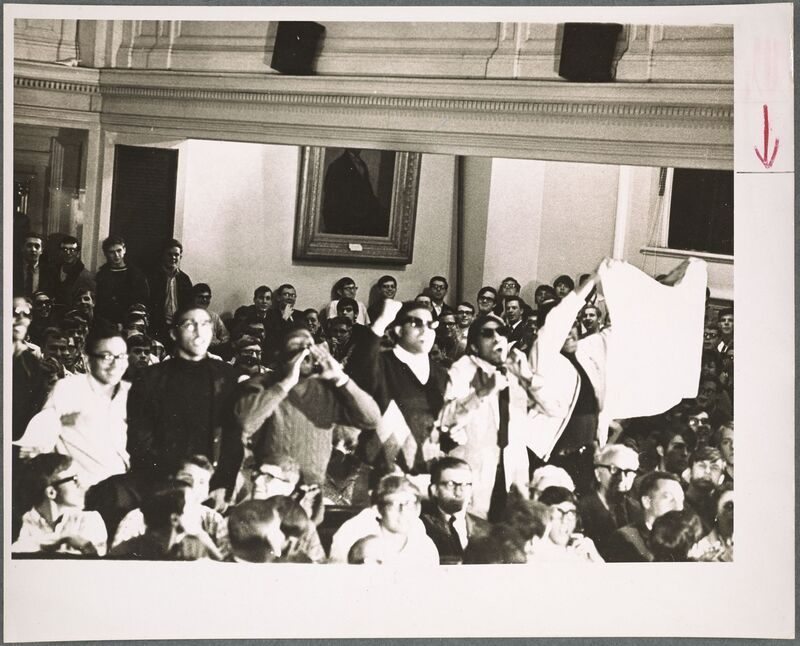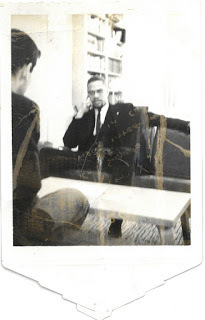Civil Rights and Activism
In this time in America, it was difficult to avoid racial tension. The Civil Rights movement was a heavy influence on the hearts and minds of those who were opposed to segregation and racism. Both the student body and, to a degree, the administration, worked toward equality. With organazations like the Afro-American Society, Dartmouth Christian Union, and Judicial Advisory Committee for Black Students, civil injustice became unacceptable on Dartmouth's campus.
Throughout this time period there were several figures that represented different stances on segegration and civil rights for African Americans. For instance there were two speakers brought to Dartmouth whose ideology was pro-racist and belittled Black people, William Shockley and George Wallace. William Shockley was a physicist who deemed Black people genetically inferior and came to Dartmouth to give a speech. But students did not even allow Schockley to commence his speech: They rose to intially applaud him but instead of sitting after a respectable amount of clapping, they stood tall and clapped so long he was unable to give his speech. This was in 1969 but the situation was similar during the George Wallace's speech in 1967. George Wallace was the former governor of Alabama who was also racist and promoted segregation. Yet two of the most influential faces of the civil rights movement also visited Dartmouth, Martin Luther King, Jr. and Malcolm X. In fact, a Dartmouth student, Ahmed S. Osman '65, had befriended Malcolm X and was involved in getting Malcolm X to campus. These two were idols to students across the globe and especially to Dartmouth students.
"... I know that at the time, Martin Luther King had a broad following, even among people who were perhaps more militant than Martin Luther King advocated. There was a great respect for him. I know that that was the case at Dartmouth and across the country, and probably other colleges as well. I mean, he was such a powerful figure in terms of his ability as an orator. His ability to arouse people and to go to the heart of what is right and decent and convince people about what is right and decent. And he was just a brilliant man, so there was a lot of respect for him."
Willie Bogan
Malcolm X and Martin Luther King, Jr. both offered a sense of hope for Black students at Dartmouth, so much so that their assassinations deeply affected students' minds and hearts. In their minds, a sense of progess and two African American pioneeers were taken away from them. In their hearts, two leaders who cared so much about their future and helping them succeed were also taken away.
Malcolm X heavily influenced his friend Ahmed S. Osman '65. Willie Bogan attested to how the students on the campus then took a more miltant approach toward fighting for Civil Rights. He left such an everlasting impact on students at Dartmouth that they named the residental hall for African American students after him, El Hajj Malik El Shabazz-Cutter Hall [now Shabazz Center for Intellectual Inquiry.] Following shortly there was a mural painted in remembrance of him.


